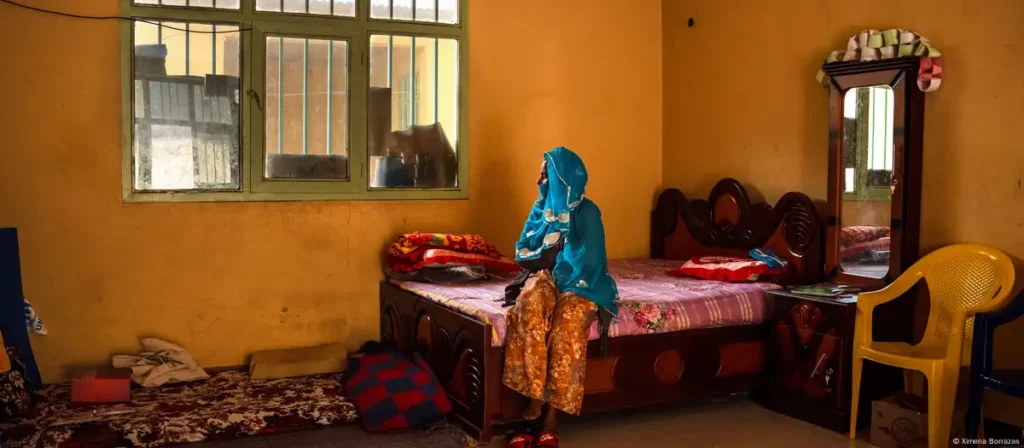Many survivors of Ethiopia’s devastating Tigray war remain optimistic despite the scars left by the conflict.
Before the outbreak of war in Tigray, life was quite different for 42-year-old Kebedesh and her family in the northern part of Ethiopia. She ran a small hotel and was also involved in small-scale agriculture. Everything was going well for her.
Then, in November 2020, fighting between the Ethiopian National Defense Forces (FDRE) and the Tigray People’s Liberation Front (TPLF)broke out. The war — which lasted two years — later saw Eritrean forces and Amhara militia joining hands to support the Ethiopian government forces.
Rape as a weapon of war
A week after the outbreak of the conflict, as Kebedesh and her 8-year-old daughter were walking through Kafta, a rural area near the Eritrean border, five soldiers intercepted them, four from the neighboring country and one from the central government.
“They aggressively asked me, ‘Do you have a man at TPLF?’ — I said no,” Kebedesh recalled.
The five men gang-raped her. At the same time, they stabbed her daughter and poured boiling water on her stomach to silence her cries for help.
After the soldiers left, Kebedesh gathered all the strength left in her and took her seriously wounded child to an Ethiopian military base to receive medical assistance.
Kebedesh was among the estimated 120,000 people subjected to sexual violence during the war in Tigray, according to the International Bar Association’s Human Rights Institute for the Parliamentary Group on International Law, Justice and Accountability (APPG).
“Some of them have committed suicide because of the stigma,” Yirgalem Gebretsadkan, head of the Violence Against Women unit of the Tigray Genocide Commission of Inquiry, told DW.
Life at the IDP camp
After this incident, Kebedesh and her daughter’s lives became uncertain. For three months, they lived in an internally displaced persons (IDP) center in Adwa.
Adwa, located 160 km (99 miles) north of Mekele, has a population of about 40,500 people. The Adwa Women’s Affairs Office states that it has recorded 1,374 cases of rape; 86 of those cases were HIV positive, 72 of whom are children.
But then Kebedesh’s life improved after she was picked to be part of a program run by the Don Bosco Mission for victims of sexual violence. Since then, she has been sharing a compound of five rooms with ten people who are also survivors of sexual violence.
Dealing with the trauma and stigma of sexual assault
When her little daughter, who just turned 11, lifts her T-shirt, it is impossible not to feel distressed. A visibly huge scar compounds the stomach problems she carries from the stabbing,
The girl attends a private school that is paid for by the Don Bosco Center.
According to her mother, she has no friends. “Sometimes she is afraid when she walks to the student center [where classes take place], she is afraid that someone will attack her again.”
On top of all the experiences endured over the past four years, they suffer from stigmatization.
Now, both mother and daughter live in the shadow of suffering, afraid to speak out because of the stigma and harassment that society tends to impart on survivors of sexual violence. They fear being pushed into a corner and forced to leave the city.

